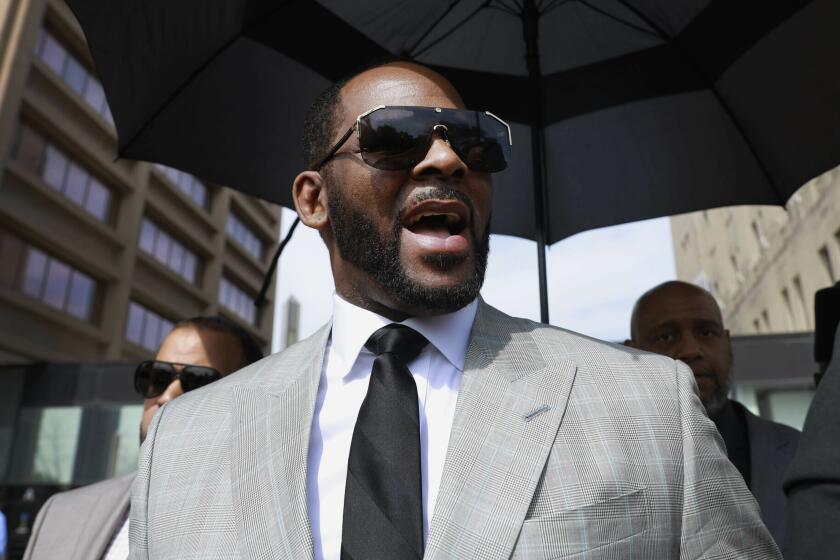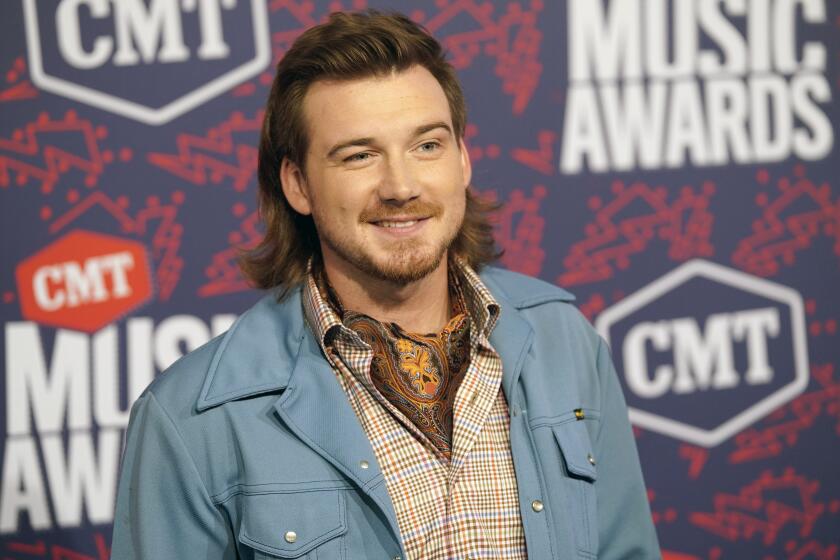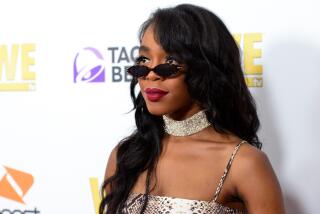#MuteRKelly co-founder: I’m through crying. It’s R. Kelly’s turn
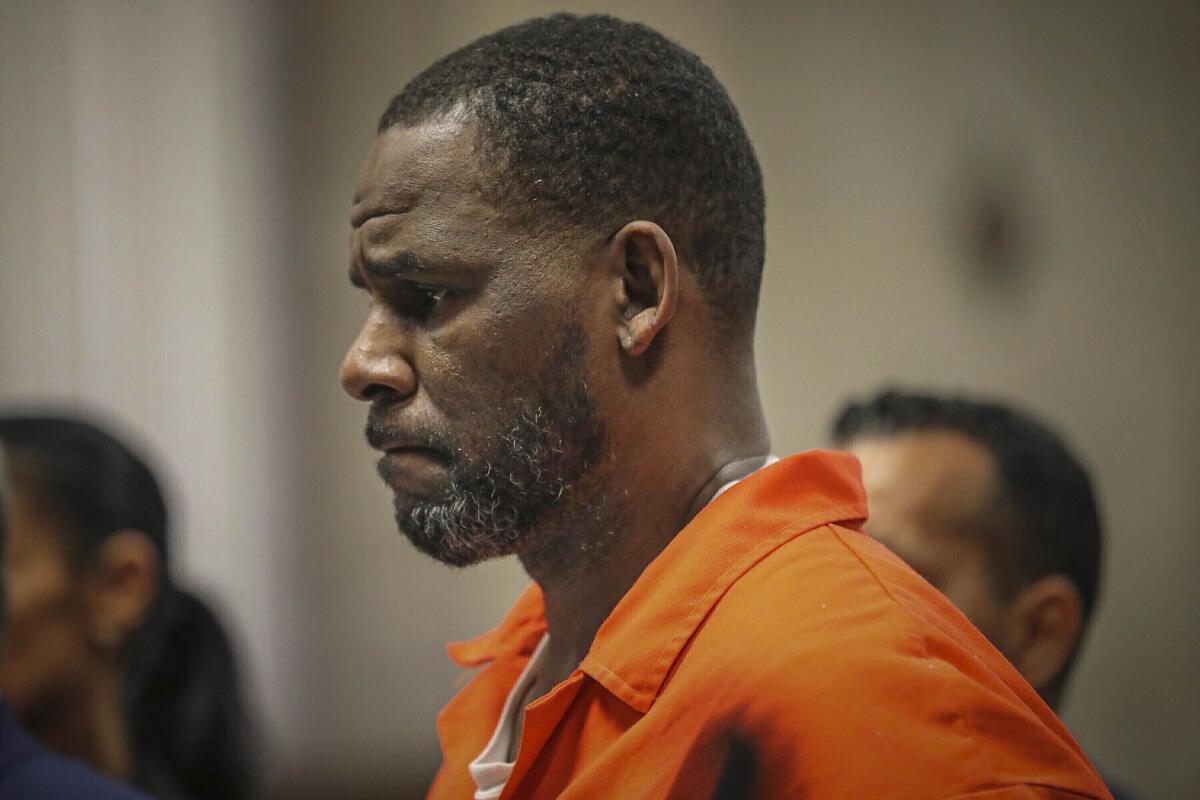
- Share via
The first time R. Kelly made me cry was the spring of 2017.
I had just begun my online campaign to get Atlanta radio stations to stop playing Kelly’s music after watching Timothy and Jonjelyn Savage on the news fighting to get their daughter out of the metro Atlanta home where they believed the singer was holding her.
It wasn’t Kelly himself that made me cry. It was the manager of a popular local radio station. Finally acknowledging my multiple emails, he agreed to speak with me about the boycott. I was nervous but hopeful. My case was straightforward: Given the alarming rates in Black America of child molestation, sexual abuse, domestic violence and sex trafficking (for which Atlanta holds the infamous honor of being No. 1 in the nation), Black media had a responsibility to not promote the music of a known sexual predator.
Yes, the station manager believed that Kelly was a sexual predator. Yes, he had seen the 2002 tape of Kelly sexually degrading a 14-year-old. Yes, he knew that child trafficking was a problem in our city. Yes, he found it all disgusting, amoral and repulsive. But no, he wouldn’t stop playing Kelly’s music.
He explained that the radio station didn’t believe in judging an artist’s morality. If it stopped playing artists simply because they abused young women, it’d have hardly any music to play. Besides, he said, people really didn’t care enough about this story for the station to take a position. Kelly’s biggest fans were women, he added, implying that if these fans aren’t offended by his actions, why should the station be?
I thanked him for taking the time to speak with me, ended the call and bawled my eyes out.
From Lifetime’s bombshell docuseries “Surviving R. Kelly” to an explosive interview with Gayle King, TV helped bring the singer to justice. Finally.
The second time R. Kelly made me cry was unexpected.
The day had started with a bang. The Women of Color coalition within the Time’s Up movement had taken notice of the organizing work of #MuteRKelly, the campaign that Kenyette Barnes and I co-founded to get Kelly’s music off the radio, out of concert venues and removed from streaming playlists. The coalition publicly endorsed us, and all of a sudden we were thrust into the national spotlight. We had #MuteRKelly chapters across the country and abroad and had been successful in getting his radio spins significantly decreased and his concerts canceled. We were so successful, in fact, that Kelly’s management was forced to offer promoters and venues deep performance fee discounts and free promotional help to coerce them to book the singer. People like filmmaker Ava DuVernay and singer John Legend were praising our work.
When I called a man I was dating to share my excitement, I was taken aback. Instead of giving the support and encouragement I needed, he said coldly, “That’s really none of your business.” He said, “You weren’t there and don’t know his side. Those girls knew what they were asking for, and they got it. And you gotta be careful, playing with that man’s money. It’s not your place to interfere. You should mind your own business and let them deal with it.” I’d heard those comments from others, of course, but I hadn’t expected to hear them from someone I was dating. Rage caught in my throat so fast that it shocked me.
Through those long, emotionally draining months of organizing, I had chosen to ignore the silence from the men around me about our work. While my circle of women praised me often, publicly and loudly, the men often showed me support only in secret — in a text message or DM — if they did at all. I chalked it up to the Black man’s unspoken “Bro Code” that trains them to be silent about what other men are doing — be it good or bad. I knew that my circle of men loved me, respected me and would protect me if necessary. But I also saw how often their love and respect and protection did not extend to all Black women — that it was contextual to their personal relationship to me, and that they too blamed the girls and young women who had been victimized.
I ended the call and bawled my eyes out.
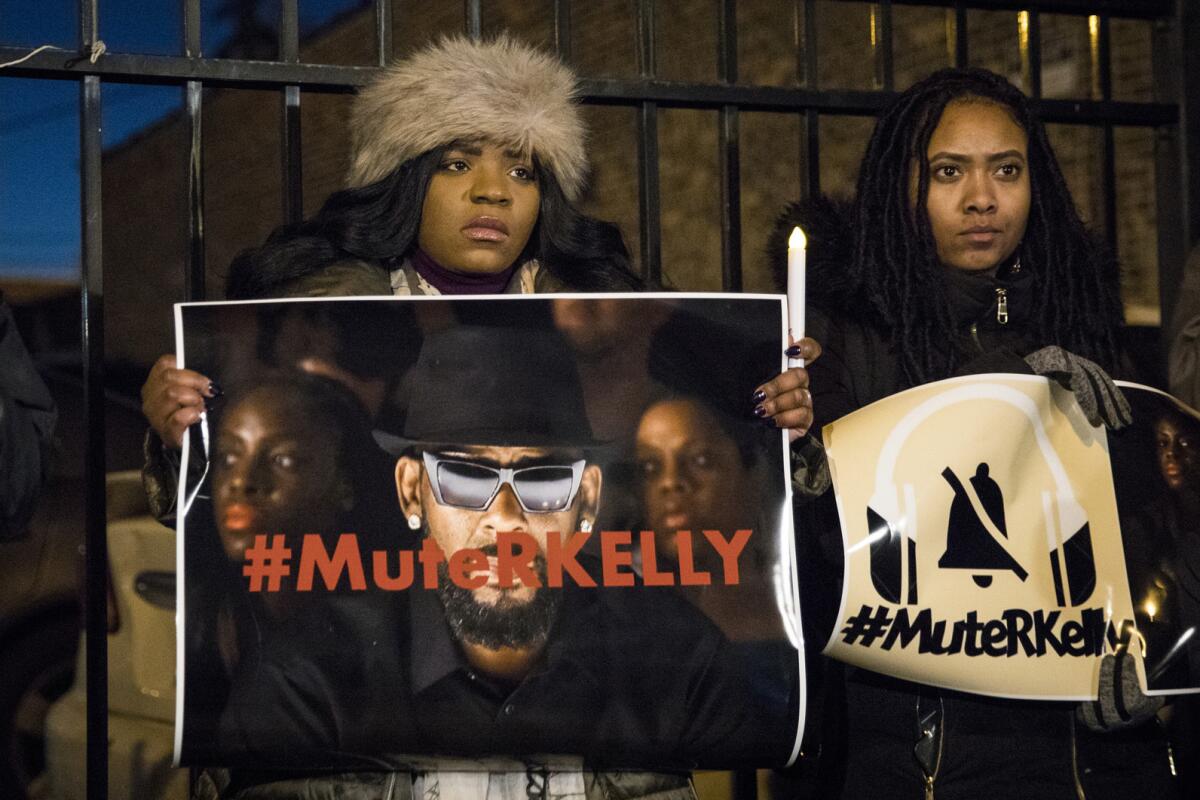
The third time R. Kelly made me cry was months later and blends in with the fourth, fifth, sixth and seventh times.
#MuteRKelly had the singer and his team on the ropes. They were waiting until the last minute to announce concerts in order to avoid cancellation or the protesting crowds that we would organize. In May 2018, a video had come out showing Kelly surrounded by a crowd of sycophants chanting that it was too late for us to mute him. In a show of bravado, the singer raised his glass in a toast and declared, “They should’ve stopped me 30 years ago.”
Though the video was meant to make us feel insignificant, it was a proud moment for the #MuteRKelly movement. He knew who we were and what we were doing, and he was scared enough to respond. The best way to ensure that a Black woman accomplishes something is to tell her what she can’t accomplish. I watched that video and smiled.
Other Black women were also watching and plotting. When journalist dream hampton approached us about taking part in “Surviving R. Kelly,” a docuseries she was creating to give the women he had victimized an outlet to tell their stories, I knew that the truth that #MuteRKelly had helped to push out into the world would soon reshape the singer’s livelihood and legacy. One of the major stumbling blocks in our fight had been getting people to grasp the very real and lasting damage that Kelly had done to so many. A documentary with first-person accounts of the pain and degradation he had forced on children and young women would bring into the light what had been hidden in the dark.
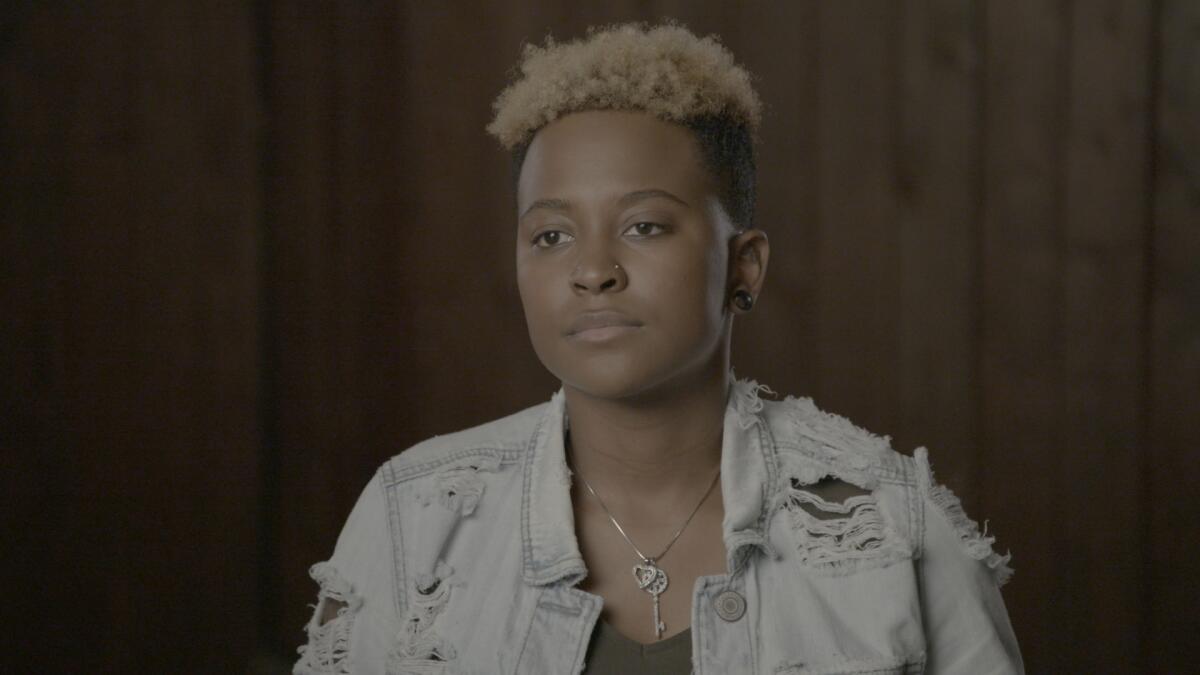
Like others who watched the docuseries, the sordid, horrific details of Kelly’s mental, physical, emotional and sexual abuse brought me to tears. I cried for Lisa Van Allen, Jerhonda Pace, Lizzette Martinez, Andrea Kelly, Stephanie “Sparkle” Evans, Kanika “Kitty” Jones, Asante McGee, Dominique Gardner, Tiffany Hawkins, Jovante Cunningham, Ebony Wilkins, Lanita Carter and Aaliyah. I also cried for all of the girls and women who did not come forward and whose names we may never know. When Kelly went on an ill-conceived image rehab tour and granted CBS’ Gayle King an interview with his “girlfriends” Azriel Clary and Joycelyn Savage, I cried for them. They were the naive losers in a shell game that everyone but them knew was rigged.
In the follow-up documentary, “Surviving R. Kelly Part II: The Reckoning,” Carter says that when she was raped by Kelly he “crushed her life.” I could clearly see the weight of shame still on her chest — a weight shared by many survivors, I imagine — all these years later. Sexual abuse, physical isolation and domestic violence is a brutal combination used by abusers. It derails lives, steers whole generations off course and often plunges survivors into a never-ending cycle of trauma and dysfunction.
I cried for his victims, for their families and for their uncertain futures. R. Kelly had crushed each and every one of their lives.
Morgan Wallen is not invited to attend November’s CMA Awards, despite his album of the year nomination. Next up: What will Grammy voters do?
By the time charges were brought against him in New York, Illinois and Minnesota, I was long past tears. We had succeeded in getting him effectively muted from Black radio. He couldn’t book a concert in anyone’s living room, yet alone an arena. He had tried and failed to leave the country for a concert that was revealed to be a sham. His public life, at long last, reflected the internal chaos that he and his protectors had long been hiding. When he was remanded to jail without bond in Brooklyn, I effectively put him out of my mind. My work was done.
Kelly was convicted this week of racketeering and eight counts of sex trafficking by a federal jury in New York. One of my friends called to find out how I was feeling, and I honestly didn’t know what to say. I had been entrenched in this work for more than four years, battling a seemingly impenetrable system hell-bent on protecting him.
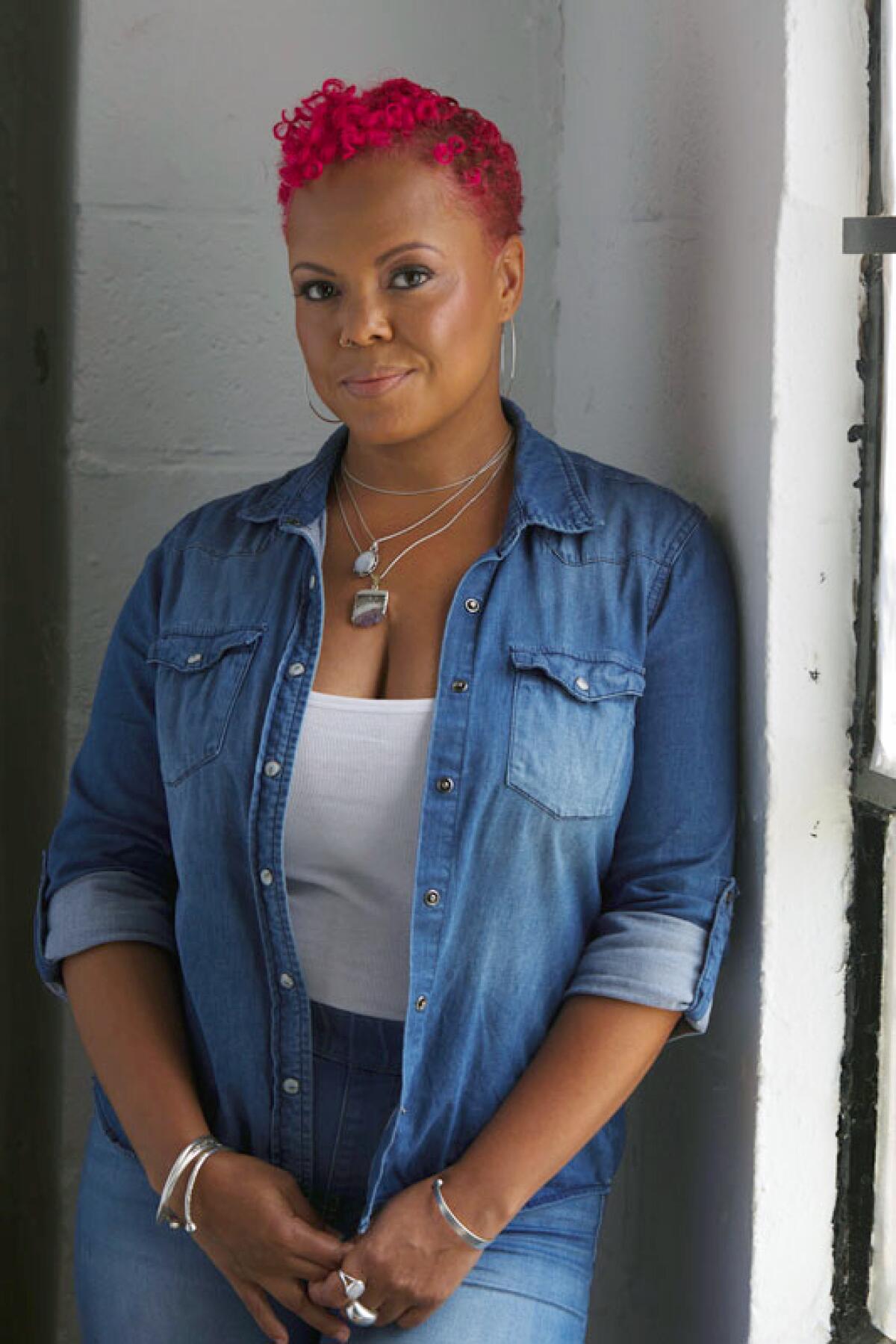
What I felt most was relief. Kelly, after more than 30 years, wouldn’t be able to hurt any more of our babies. He wouldn’t burden innocent girls and young women on the cusp of adulthood with the weight of shame, humiliation, violence, isolation and disease. He wouldn’t be able to sweep up any more of our girls and women into an embrace that leaves them deeply scarred.
And at the end of the day, that is what this work and all the work of preventing sexual violence is about — protecting our babies, whether they’re 14 years old or 40. All of us deserve full ownership and autonomy over our bodies. Our young people deserve to be able to explore their sexuality in safe, healthy and age-appropriate ways. And they deserve our support and protection as they navigate the unpredictable waters of new adulthood. As a community, we must protect our girls and women from being exploited because of their race, economic status, age or any condition that makes them easy prey. They do not deserve to be shamed for believing that someone rich and famous and talented could love them. None of these young women deserved any of what they received.
Kelly will be sentenced on May 4. He faces 10 years to life in prison. I have been asked what I hope for him in the future. It’s simple. He must acknowledge and atone for all the pain he has caused. I hope he sits alone in a jail cell for many, many years, shedding real tears for all the women who have cried because of him.
We’re through crying. It’s his turn.
Oronike Odeleye is the festival director for One Musicfest, an annual urban progressive music festival, and is the co-founder of the #MuteRKelly movement.
More to Read
The biggest entertainment stories
Get our big stories about Hollywood, film, television, music, arts, culture and more right in your inbox as soon as they publish.
You may occasionally receive promotional content from the Los Angeles Times.
